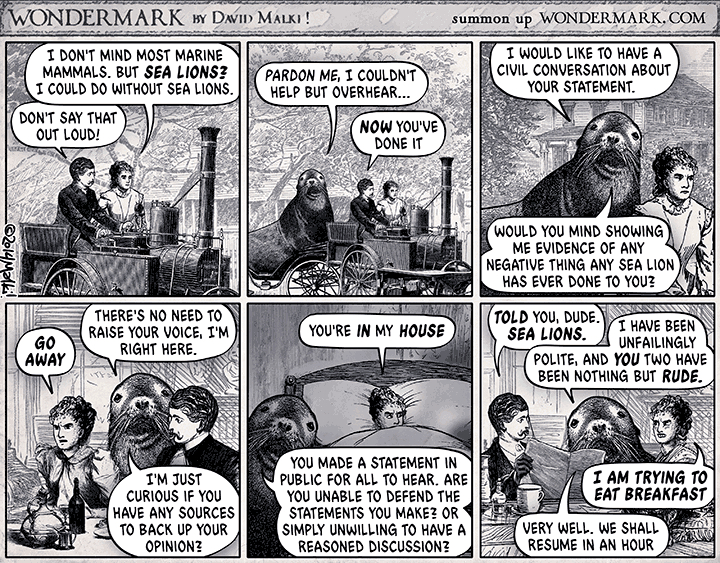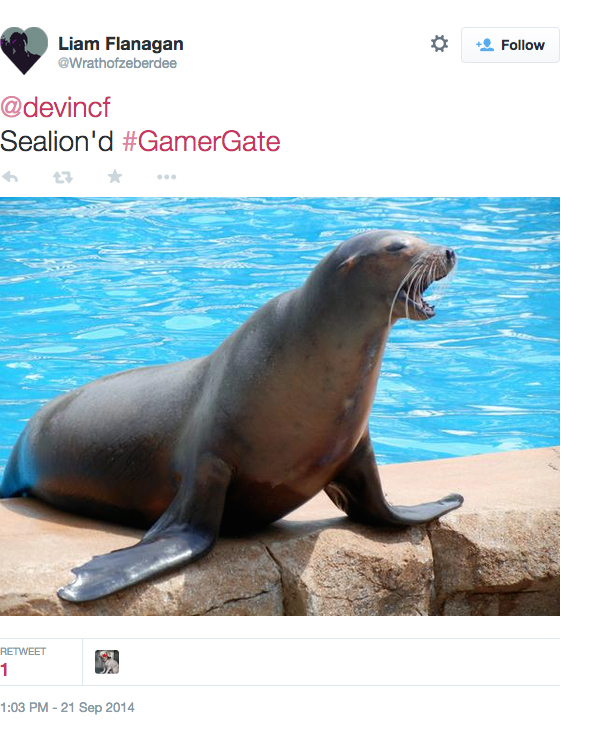v. To intrude upon an online conversation in an attempt to engage opponents in debate, particularly by using a tone of feigned civility.
2015
[T]he de facto break up scene between the characters was great, especially Peggy's realization that corporate espionage was not the ideal that Steve would have held her to (oh yeah, good point), and this bistering put-down; "You don't get to use my reaction to your lies as a reason for your lies." There, Peggy speaks for every angry marginalised person who's ever been sealioned or tone-policed in a disagreement.
2014
The idea of "sea-lioning" is to be a sort of overly polite yet insistent pest, to be so passively annoying that you goad your target into exploding in anger at you, thereby making you the victim.
2014
If, like me, you've discussed Gamergate on Twitter, you've probably uttered those five famous words from Arrested Development at least a few times: "I've made a huge mistake." Talking about this particular subject in that particular venue is, in fact, a terrible life decision. But why? Why the insane level of sea-lioning and fake umbrage and asinine arguments?
2014 (earliest)
I retweeted @stephentotilo. That was my contribution. Arinn responded to me. Everyone else sea-lioned in.
The source of this verb was a Wondermark comic that ran on September 19, 2014:
Also, here's a tweet that's a few hours older than my earliest citation and is notable, at least, for using "sealion" as a verb within the context of the GamerGate debate:
Also, here's a tweet that's a few hours older than my earliest citation and is notable, at least, for using "sealion" as a verb within the context of the GamerGate debate:


